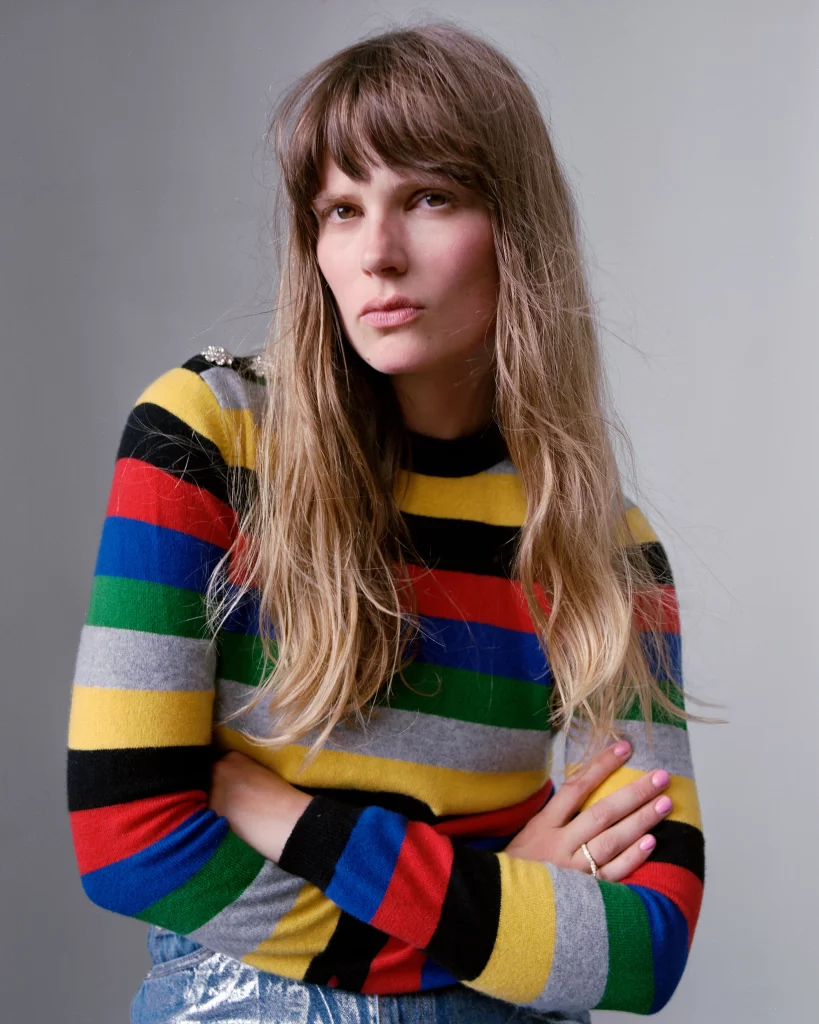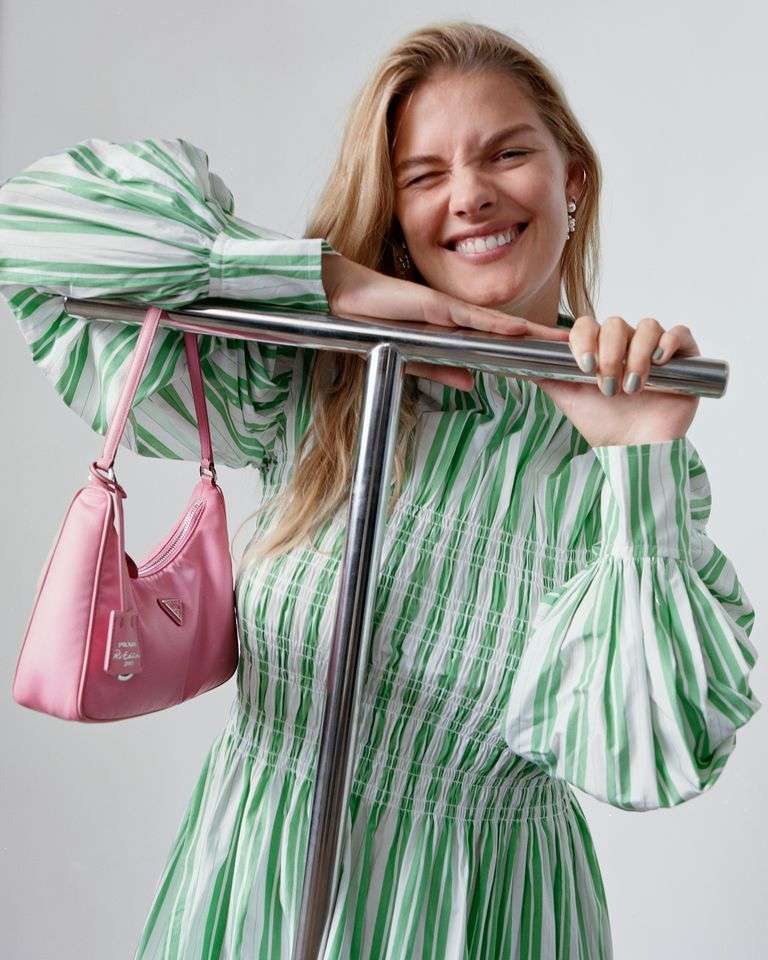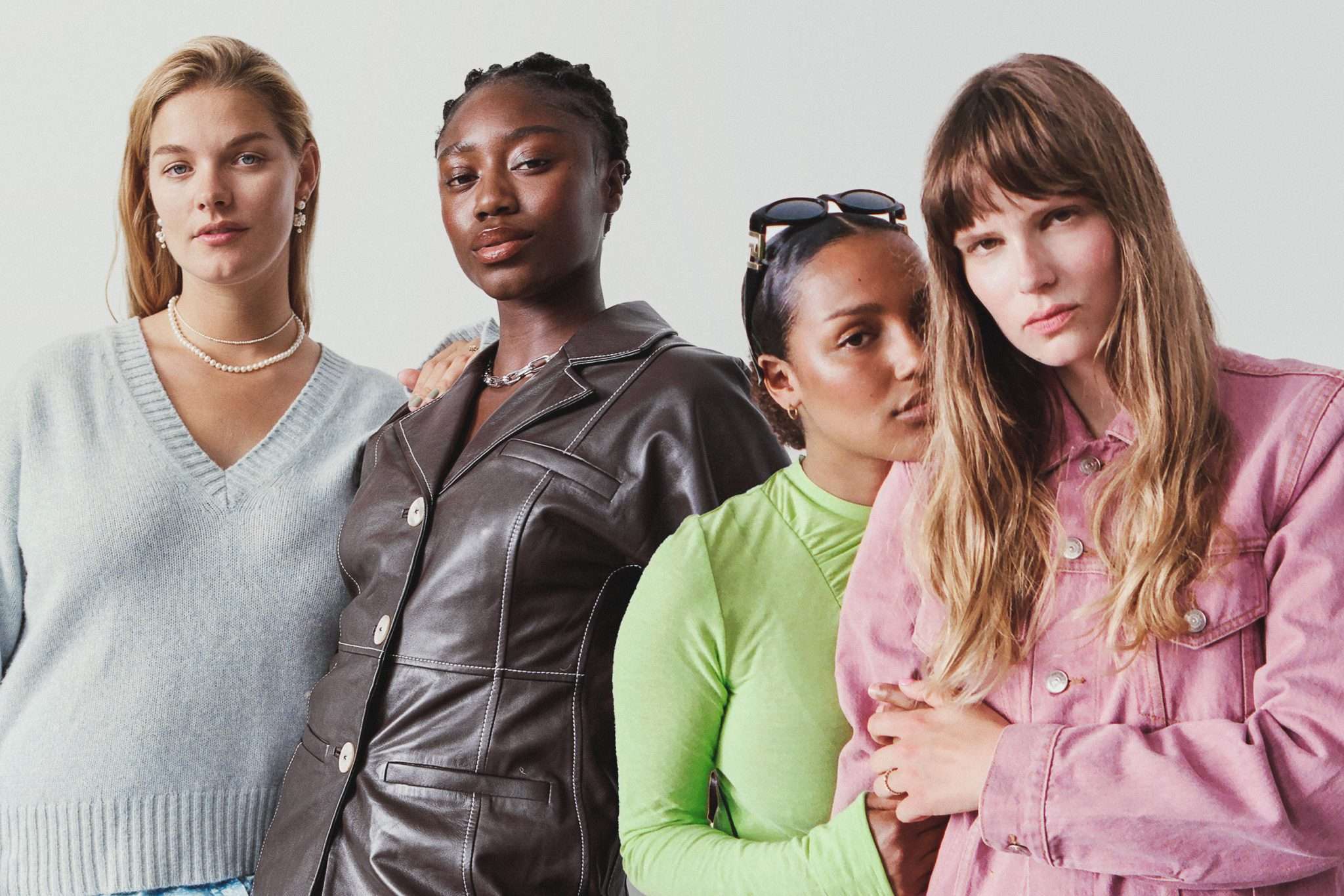Ganni and Vestiaire Collective promote circular fashion in archived and pre-loved collection.
Paris-based sustainable secondhand platform Vestiaire Collective has announced a new partnership with Danish fashion house Ganni to sell archived styles from the label’s #Scandigirl collection. Dubbed “Old + New = Now,” the Ganni and Vestiaire collaboration is aiming to elevate circular fashion.
“I have always loved vintage,” Ditte Reffstrup, creative director at Ganni, said in a statement. “It ensures clothes are loved forever, gives everyone freedom to express their own style, and enables reinvention of our wardrobes in a circular way.”
“I love seeing how my friends and the cool Copenhagen girls in each video style up newer Ganni pieces with pre-loved. Adding their own personality makes everything look individual and unique.”
The brands have employed the help of celebrities, including Danish models Caroline Billie Brahe, Chili Dia, musician Flame Faire, and stylist Christine Sofie. They’ll all be taking to social media to pair Ganni’s vintage wears with “pre-loved” items from the Vestiaire platform.
Rewriting the fashion narrative
On average, Americans toss more than 80 pounds of clothes per person every year; 85 percent of all textiles are thrown away and nearly 13 million tonnes go to landfills or incinerators. That number is expected to jump to 134 million tonnes per year by 2030.
Globally, fashion production is a leading producer of carbon emissions (10 percent), pollutes and dries up water sources, and uses immense amounts of pesticides and other chemicals, such as those required in tanning leather. New clothes also produce microplastics and microfibers that find their way into waterways where animals often mistake them for food.

“Both Vestiaire and Ganni want to change the way we consume fashion, and I think by giving a second, third or even more life to clothes, you’re already bringing that sustainability mindset,” said Fanny Moizant, co-founder and president of Vestiaire Collective.
The move builds on the French resale platform’s efforts to encourage secondhand shopping. It recently partnered with the Slow Factory Foundation, which offers a fashion-focused summer camp. With Vestiaire it offered a three-week course on how to achieve circularity in fashion.
The Vestiaire Collective earned unicorn status earlier this year went it went public in March. The platform’s most recent round of funding included support from Gucci parent company, the French luxury group Kering, and US investment firm Tiger Global Management, taking the platform to a valuation of more than €1 billion. The company also raised capital from existing shareholders including Vestiaire Collective’s CEO, Max Bittner, Bpifrance, Condé Nast, and the Eurazeo Group, among others.
Disrupting big fashion
Vestiaire Collective—vestiaire is French for cloakroom—is using the funding to scale its resale app technology and data innovation roadmap; its aim is to extend the life of secondhand fashion and keep used textiles out of landfills as well as decrease the production of new fashion items.
The funding will also help to accelerate its four key sustainability pillars: triggering a change in luxury fashion; growing its community of ‘fashion activists’; becoming carbon neutral by 2026; and being an exemplary B Corp certified business.
Vestiaire Collective began its fashion industry disruption in 2009 with the aim of moving the industry toward a circular economy and empowering its loyal ‘fashion activists’ to bring sustainability front and center in changing how people view secondhand clothes. It’s worked thus far; the company achieved a 90 percent year-on-year membership growth last year. Although Europe-based, the company is seeing rapid growth in the U.S. and Asian markets.

“As of January 2021, local sellers in those regions had increased their items sold by more than 250% year-over-year,” Tiger Global partner Griffin Schroeder said in a statement.
“There is an urgent need to address the way we currently produce and consume fashion.”
-FannyMoizant, co-founder and president of Vestiaire Collective
The platform doubled its transactions between 2019 and 2020, with more than 140,000 new listings posted to the site every week.
Vestiaire Collective is vying for the lion’s share of the resale fashion market, which it estimates to be worth more than €49 billion by 2025. The company’s €1 billion valuation speaks to the potential.
Earlier this year, Vestiaire Collective partnered with “The Good Place” actress Jameela Jamil, a long-time sustainability advocate. It also teamed up with luxury label Alexander McQueen on a new circular fashion initiative. Under the “Brand Approved” program, McQueen buys back pieces from clients and lists them on the platform. Jamil sold items from her personal wardrobe.
“The resale sector as a whole is experiencing rapid growth,” Bittner said, “especially amongst Millennial and Gen-Z consumers, which will come to shape the retail landscape of the future.”
Moizant said the Brand Approved programme offers sustainable solutions while also reinforcing the importance of durability, a move that is also empowering “first-hand fashion players to disrupt their linear business models and embrace circularity,” she said.
“There is an urgent need to address the way we currently produce and consume fashion.”


